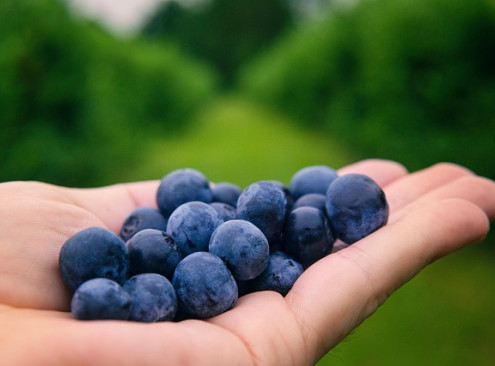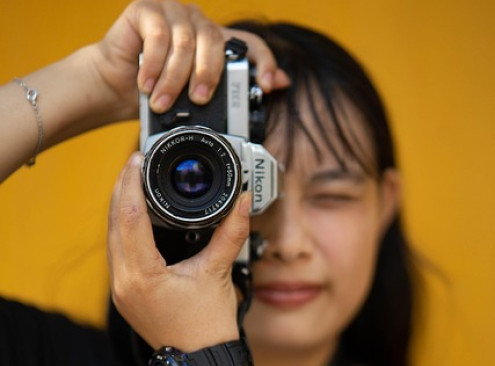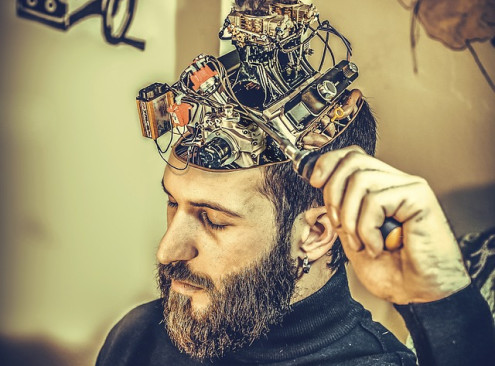© Pint of Science, 2025. All rights reserved.
Every day, humans explore the world using a variety of senses. But how much are your perceptions influenced by what you expect to experience?
Join us to explore how our mind, vision, and hands experience more than reality ... and how perception is not always what it seems!
Join us to explore how our mind, vision, and hands experience more than reality ... and how perception is not always what it seems!
The hands assume, not weigh
Constanze Hesse
(Professor, University of Aberdeen)
We’ve all misjudged an object’s weight - like lifting an empty container expecting it to be full. A striking example of this is the Size-Weight Illusion: when two objects weigh the same but differ in size, the smaller one feels heavier. Our brains, shaped by experience, anticipate that larger objects should weigh more, leading to this surprising misperception. This illusion highlights how haptic perception isn’t just about what we feel—it’s shaped by what we expect to feel. Studying these quirks helps researchers understand perception, refine motor control, and even improve designs for tools, robotics, and virtual reality systems.

© Image by Joshua Woroniecki from Pixabay
The eyes assume, not photograph
Martin Giesel
(Research Fellow, University of Aberdeen)
Our eyes are neither cameras nor tape measures - they don’t simply record reality or measure colours or light levels. Instead, they interpret. A grey shade can appear lighter or darker depending on its surroundings, and two identical objects may seem different in size due to context effects. These illusions reveal how perception depends on our assumptions and prior experience. Understanding these quirks has real-world applications, from designing safer road signs to improving virtual reality and digital displays.

© Image by Thuan Vo from Pixabay
The mind assumes, not records
Helen Knight
(Senior Lecturer, University of Aberdeen)
Our mind does not record and store every detail we encounter- it filters and focusses on what it assumes to be most relevant. This leads to the phenomenon of inattentional blindness, where we fail to notice things happening right in front of us, and change blindness, where even obvious changes go unnoticed. These quirks reveal how selective our attention can be, and how easily we can miss details in the world around us. Understanding these processes is key to improving safety in high-stakes environments where missing details can have serious consequences and can help us appreciate just how (in)accurate eyewitness accounts can be.

© Image by aytuguluturk from Pixabay
Map data © OpenStreetMap contributors.
Other OGV Taproom Newburgh events
2025-05-20
Surf and Turf
OGV Taproom Newburgh
Newburgh Golf Club, Aberdeenshire, AB41 6BY, United Kingdom



